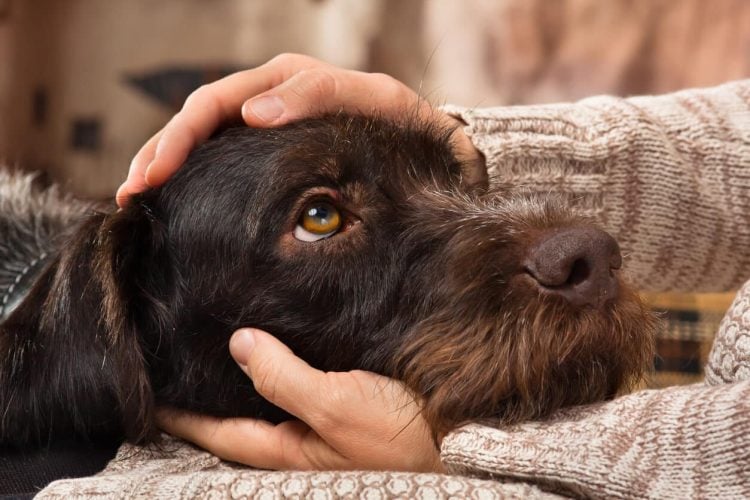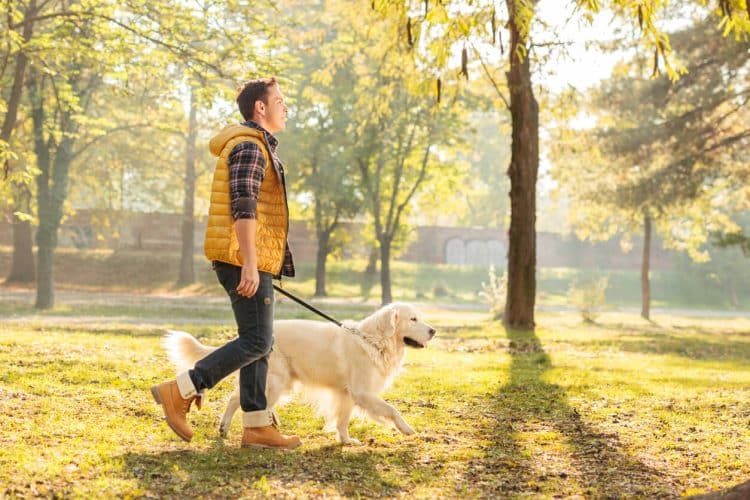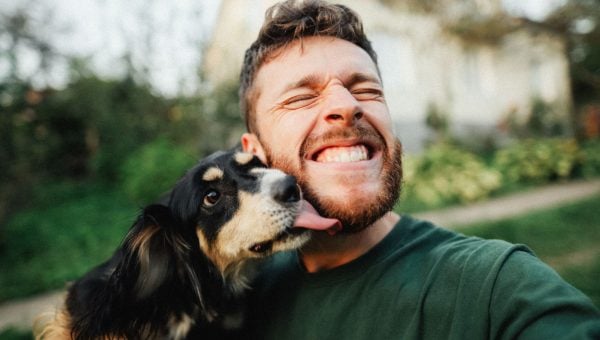For years, people experiencing mental and emotional health concerns have turned to dogs as a source of comfort and support. Your dog’s loving eyes and constant companionship might improve your mood any day, but experts believe dogs can also sense depression and anxiety in people.
In fact, the first instances of canines as ‘therapy’ companions date back to the late 1800s, though it took until the 1960s for the idea of therapy animals to become widely popular.
When your dog does pick up on painful or unwanted emotions, they often respond accordingly—for instance, by providing reassuring nuzzles and sticking by your side.
Yet while dogs might know more about your emotional state than you might realise, they can’t diagnose or treat mental health conditions. Comfort from your beloved pup isn’t the same as getting professional treatment. So, if you do have symptoms of anxiety or depression, it’s best to connect with a therapist for a formal assessment.
How Do Dogs Sense Emotions?
There’s no denying that dogs can reflect and mimic many human behaviours—like limping in empathy when their pet parent has a broken leg!
Evidence increasingly suggests dogs may also pick up on specific emotions, so they may also be able to sense depression, anxiety, and other mental health symptoms.
Dogs might get sad when you feel sad
Dogs appear to have the capacity to empathise with humans. For one thing, dogs experience what’s known as emotional contagion, which is why you might see them yawn right after you do. They also have higher levels of cortisol, the stress hormone, when they hear a child crying.
Emotional changes make dogs act differently
Experts have also found that a dog’s actions can change in response to human emotions.
In one experiment, researchers separated dogs and their pet parents with a door. The people then either faked crying or hummed a tune. The dogs reacted more quickly to try and reach the person’s side when they heard crying compared to humming.
Dogs can pick up on facial expressions and voice changes
Your dog might understand more about your facial expressions than you know.
In one study, researchers showed dogs photos of either the top or bottom half of a human face. They found that the dogs seemed to recognise different positive or negative expressions, likely due to their memories of human faces.
Meanwhile, researchers exploring dogs’ reactions to facial expressions and accompanying vocalisations found that dogs had stronger responses when the expression and sound matched (a person smiling accompanied by the sound of laughter, for example).
Dogs may be able to smell stress
Dogs have an incredible sense of smell—so good, in fact, it may allow them to smell stress!
In one study, scientists took breath and sweat samples from 36 stressed-out humans and presented them to dogs along with ‘blank’ control samples. Dogs could pick out the stressed samples with an average accuracy of 93.7%.
Do Dogs Know If You Have Depression Or Anxiety?
Dogs may be able to sense depression and anxiety by picking up and reflecting on facial and vocal cues. They might also hurry to your side to comfort you if you’re crying or otherwise upset.
But again, though your dog’s reaction may provide a lot of comfort, it’s not a guaranteed diagnosis of any mental health concerns. Depression and anxiety conditions involve a broad spectrum of symptoms, and dogs won’t pick up on all of these.
If you think you could have a mental health condition like depression or anxiety, don’t hesitate to seek help.
- In the UK, you can use The British Psychological Society (BPS) directory to search for a mental health professional near you.
- In the US, you can use the American Psychological Association (APA) directory to search for a mental health professional near you.
Note: If you’re in the UK, you can also call your local NHS emergency mental health line or the Samaritans on 116 123. Crisis counsellors can offer support and resources for thoughts of suicide, substance use concerns, or other emotional distress.
Can Dogs Help With Depression And Anxiety?
Experts do believe dogs can offer some level of support for certain mental health conditions.
According to one research review, dogs (and pets in general) can help by:
- Providing non-judgmental comfort
- Reducing feelings of loneliness
- Listening to your worries and troubles when you find it tough to talk to a person
- Offering a distraction from difficult or painful emotions
- Easing thoughts of suicide by giving you a reason to keep living
Whether your dog can sense depression and anxiety or not, their presence can still make a difference! Just having a dog around can help boost the production of happy hormones and improve your mood, explains Caroline Wilkinson, a certified animal behaviourist and founder of digital pet coaching service Barket Place.
Can walking with your dog ease anxiety?
Dogs need plenty of exercise, too—and many people feel more inclined to meet their needs even when losing sight of their own, Wilkinson says.
Without a doubt, enjoying the fresh air with your dog can offer significant benefits for mental wellbeing.
In one study of walkers, those who walked alone showed lower state anxiety. Those who walked with dogs, however, experienced lower state and trait anxiety, reduced fear, and lower heart rate.
Even so, it’s important to keep in mind that while walking can help improve anxiety in some cases, it’s not the same as professional treatment.
How Your Dog Might Respond To Anxiety And Depression Symptoms
Your dog’s response to symptoms of anxiety and depression may vary, depending on their personality, life experiences, and the strength of your relationship with them.
Signs your dog is comforting you
According to Wilkinson, a dog comforting their pet parent may:
- Try to get physically closer to you—so don’t be surprised if they suddenly pop up next to you
- Rest a paw on you or lay their head across your lap
- Try to encourage playtime
What if your dog doesn’t respond?
If you’re upset but your dog seems more interested in their favourite toy, don’t take it to heart. This kind of reaction is common, Wilkinson says, and it tends to simply mean your dog isn’t tuned in to your emotional state or equipped to respond to the changes in your emotions.
Evidence suggests dogs with stronger bonds and attachments to their pet parents are the most likely to react to emotional changes.
Can you transfer anxiety to your dog?
In some instances, your dog may begin to show similar symptoms, such as lethargy and appearing sad—but this doesn’t mean you’ve ‘given’ them your anxiety.
“While anxiety isn’t contagious, dogs can feel unnerved when their primary caregiver shows signs of anxiety,” Wilkinson says. “They may feel there’s a threat in the environment that their human is responding to, or they just may feel uncertain when their carer doesn’t smell like they usually do.”
According to one study of 58 dog-human pairings, when pet parents experienced stress and had higher cortisol levels over a long period, their dogs had higher cortisol levels, too.
What’s more, dogs are creatures of habit, so they can become unsettled when their routines start to differ — particularly around socialising and exercise. Some people with depression may be less active and avoid daily walks or playtime, Wilkinson says, which can affect dogs expecting their usual schedule of daily events.
If you think your pup shows signs of depression, anxiety, or stress, it’s worth a chat with your vet. Sometimes, these changes in mood may point to an underlying health issue.







